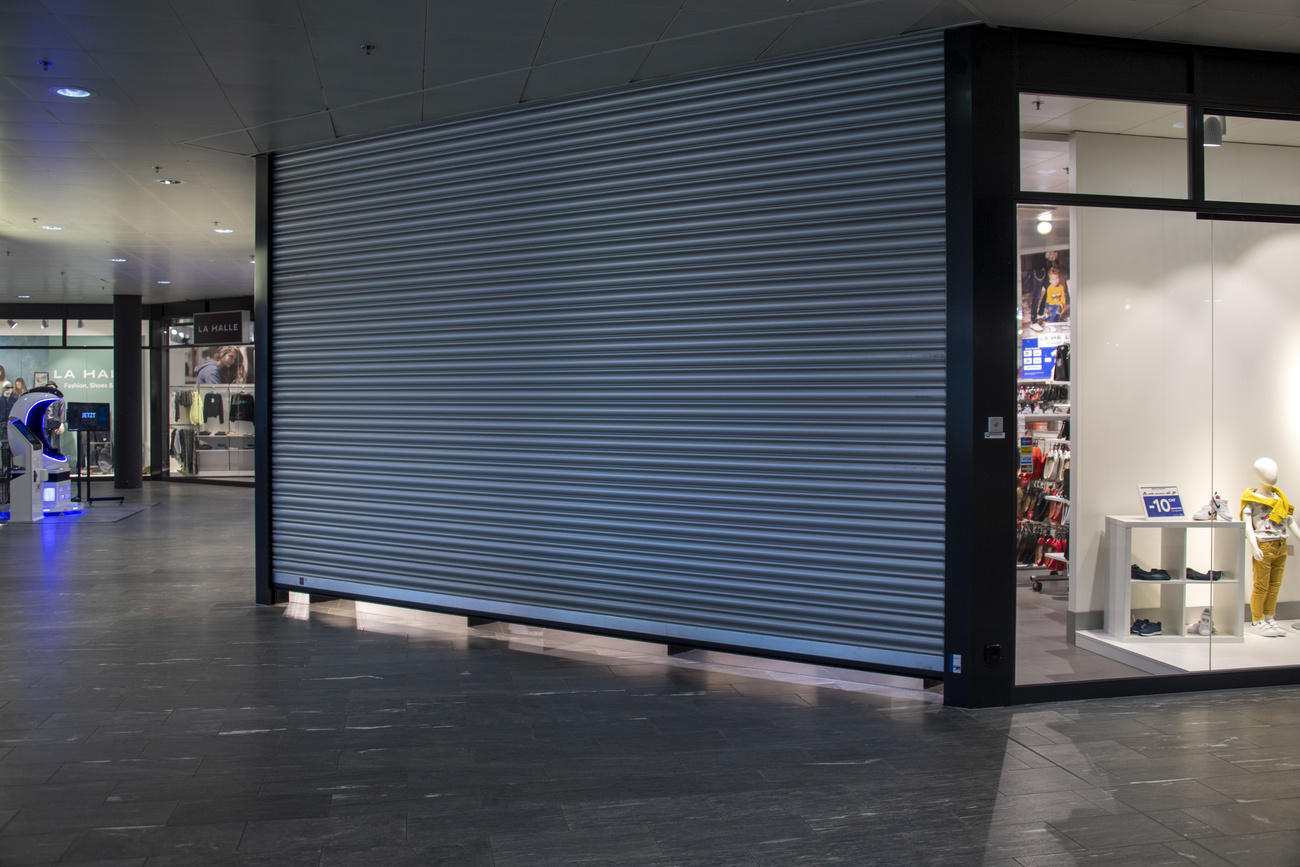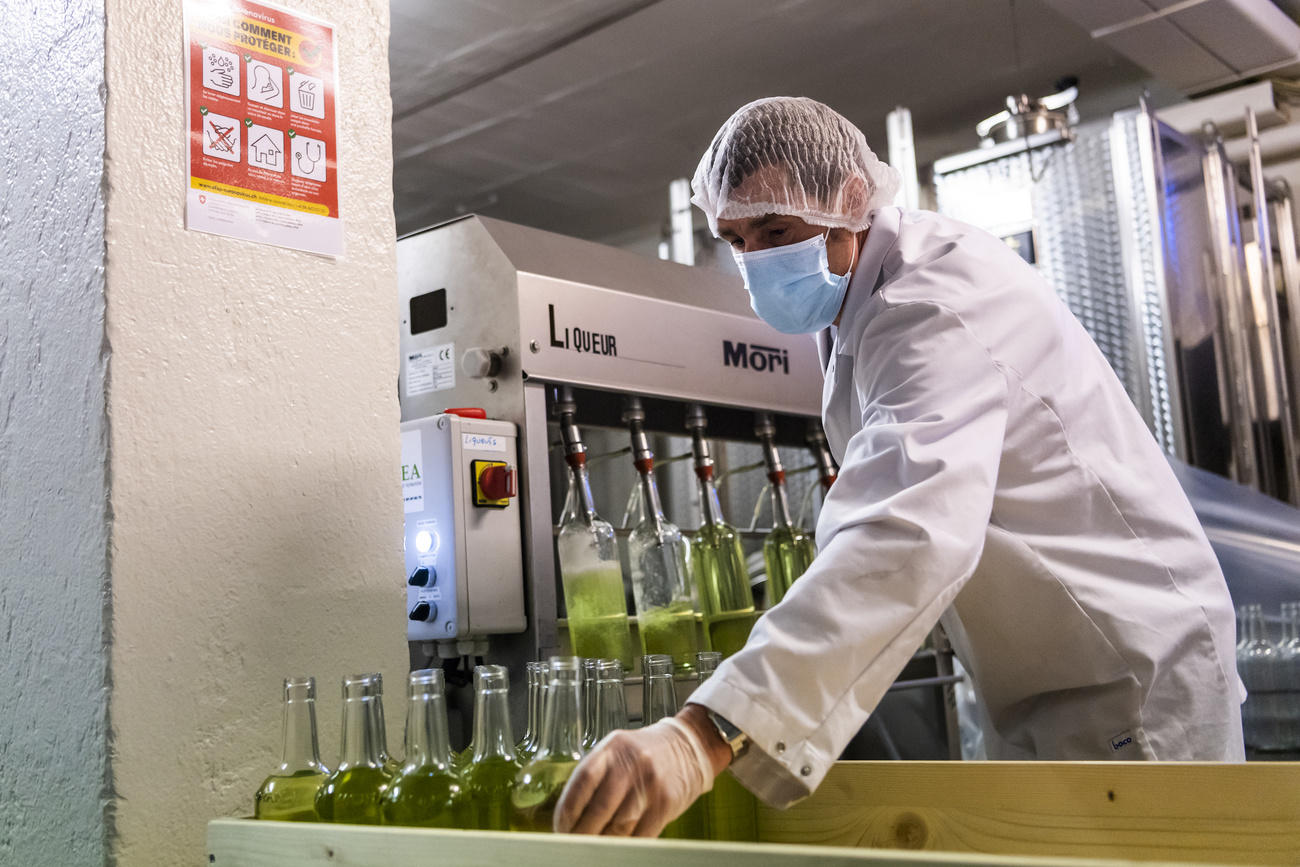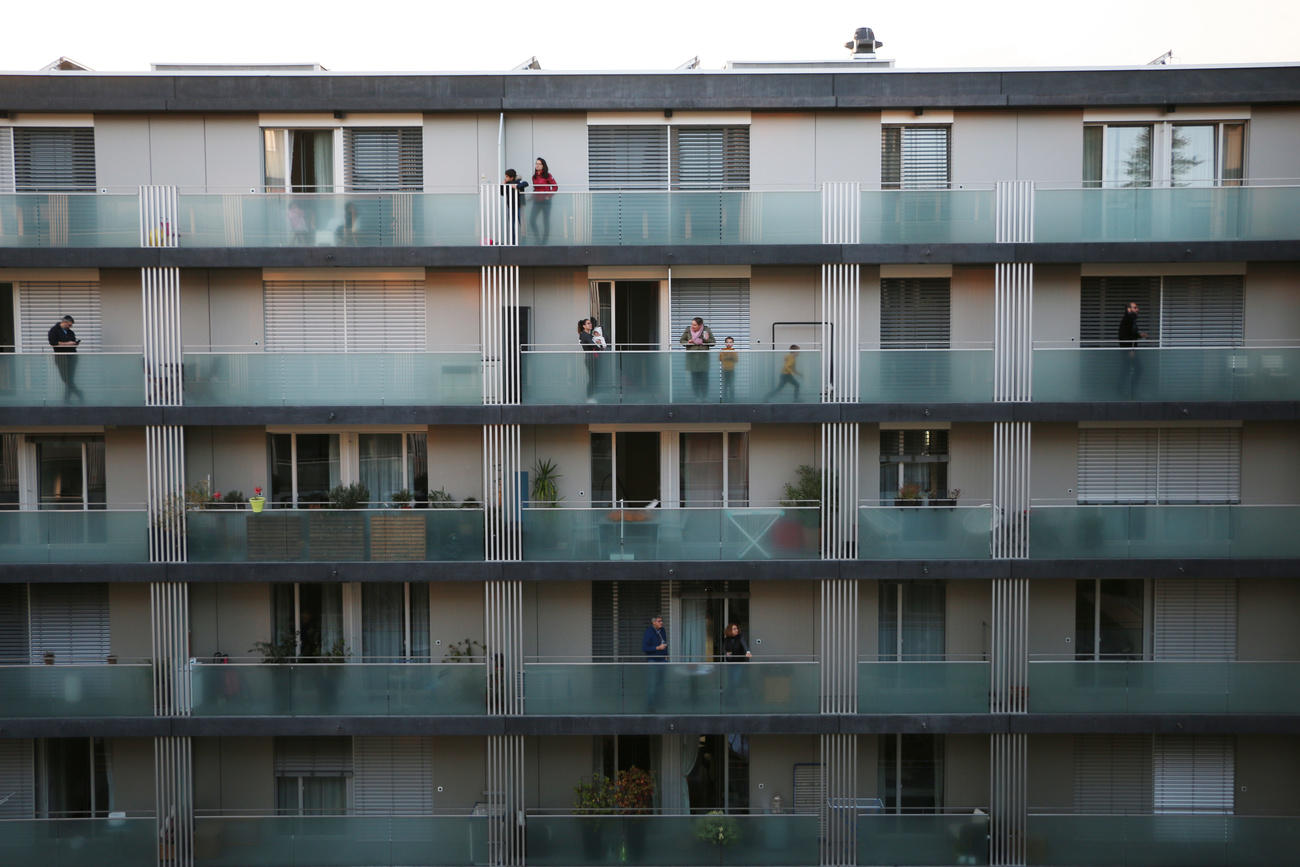Swiss concern shifts to economic fallout of coronavirus

Concerns over a Swiss health system crisis due to the Covid-19 pandemic is giving way to worries about the economy, according to a nationwide opinion poll.
The latest survey commissioned by the Swiss Broadcasting Corporation also shows that a vast majority of the Swiss follow government measures, but they seem to become increasingly impatient.
“Respondents said they take the regulations about social distancing seriously,” says Michael Hermann, director of the Sotomo research instituteExternal link, which carried out the poll. “But with the immediate health threat gone, people begin to get itchy feet and even bored.”
The survey, published on Tuesday, found that more than nine out of ten people left their homes regularly defying government recommendations, but that figure is somewhat misleading, says Hermann.
A closer look reveals that elderly respondents refrained from going shopping and drastically reduced personal contact with friends and families. And there’s been a dramatic drop in the use of public transport in Switzerland.
Mood swing
The assessment of personal danger presented by the virus has remained largely unchanged compared with a previous poll presented two weeks ago.
But concerns about a collapse of the country’s health system appear to have eased. Nearly 70% of respondents are optimistic that Swiss hospitals can cope with the number of patients. This figure is up from just 25% in March.
Three weeks into a standstill of public life, including restrictions of personal freedoms, and a partial lockdown of the economy, an increasing number of people said they would like to see an easing of the strict rules.
A reopening of shops with non-essential goods is top of the list, ahead of calls for schools to resume classes.
However, the comprehensive survey found significant differences between Switzerland’s majority German and the minority French as well as the Italian-speaking regions.
“Overall the virtual divide between the regions has narrowed notably over the confidence in the Swiss government, but conflicts are looming about schools and shops reopening,” says Hermann.
In the first online poll in March, respondents from the French and the Italians-speaking regions were a lot more critical of the government over its allegedly slow and inadequate response to the spreading epidemic.
More than 40% of respondents, notably in the German-speaking part of the country want the government to ease restrictions after April 19 – five weeks after they were imposed as part of the government’s special powers.
Only 13% came out in favour of tightening the measures and 37% of respondents said the current curbs should stay in place.
The regions hardest hit by the epidemic – Ticino, which borders northern Italy, and western Switzerland, with cultural ties to neighbouring France – both favour a harsher policy, notably limiting access to certain tourist hotspots during the coming Easter holidays.
What’s more surprising is the fact that younger respondents also agree with a strong-hand approach of the government, while the older generation hopes for more liberal regulations.
“It appears that older people begin to lose their inner calm and poise,” says Hermann. “They want their freedom back. This will add pressure on the government to respond.”
Similar differences can be found over a proposal to make face masks mandatory for people in shops.
The issue of face masks has been controversial since the Covid-19 pandemic reached Switzerland at the end of February. While the health authorities continue to doubt the practical effects of wearing masks in public, scientist are divided amid persistent rumors of a shortage of medical material.
Besides the issue of masks, two out of three survey respondents said they were willing to use a contact tracing app to help stem the spread of Covid-19.
The result is encouraging, says Hermann, but admits that the government will still have some way to go to convince a big enough number of citizens to take part in a voluntary project.
The online survey is based on answers of 29,891 respondents over the age of 15 across the country.
It was carried out between April 3-6.
The margin of error is +/-1.2%.
The poll is the second in a series of surveys carried out by the Sotomo research institute on behalf of the Swiss Broadcasting Corporation – swissinfo.ch’s parent company.

More
Coronavirus: the situation in Switzerland

In compliance with the JTI standards
More: SWI swissinfo.ch certified by the Journalism Trust Initiative






You can find an overview of ongoing debates with our journalists here. Please join us!
If you want to start a conversation about a topic raised in this article or want to report factual errors, email us at english@swissinfo.ch.